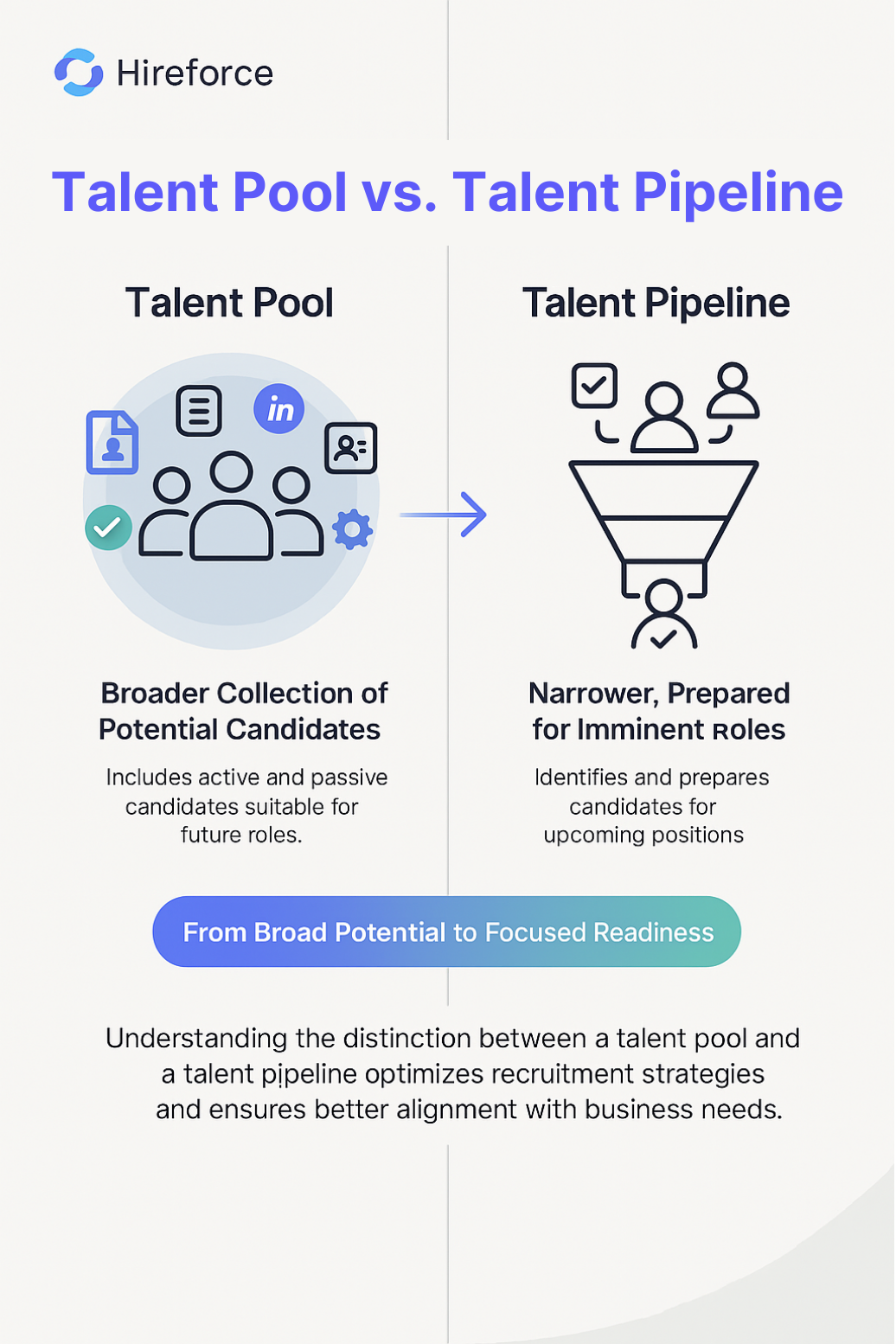Clearly defining a talent pool is essential for recruiters, HR professionals, and hiring managers because it lays the groundwork for effective talent acquisition. When a talent pool is defined as precise, recruitment teams can manage talent proactively, optimizing candidate sourcing and improving hiring outcomes. Understanding this definition directly impacts how efficiently and strategically organizations meet workforce needs, creating a competitive advantage through more streamlined hiring processes.
Importance of Clearly Defining a Talent Pool
A clear definition of a talent pool fosters consistency in talent management practices, improving communication among recruitment teams. When recruiters share a common understanding of who qualifies for inclusion in their talent pool, candidate engagement becomes targeted and effective, directly supporting strategic HR planning and workforce forecasting. It allows teams to respond quickly to hiring needs, ensuring readiness when specific roles open up.
Understanding Talent Pool in Context
Talent pools serve as essential reservoirs of qualified individuals within broader talent acquisition strategies. Defining a talent pool clearly enables organizations to proactively source candidates, significantly reducing hiring timelines and lowering recruitment costs. Companies strategically leverage their talent pools to build ongoing relationships, making recruitment more responsive and agile.
Talent Pool vs. Talent Pipeline
The terms "talent pool" and "talent pipeline" are often confused or used interchangeably, but they represent distinct concepts. A talent pool is a broader collection of potential candidates, including both active and passive individuals suitable for future roles. In contrast, a talent pipeline is narrower, comprising candidates specifically identified and actively prepared for imminent positions. Understanding this distinction ensures targeted recruitment strategies, optimizing candidate readiness and alignment with business needs.

Who Belongs in a Talent Pool?
Typical candidates in a talent pool include former applicants, internal talent, employee referrals, and passive candidates discovered through sourcing initiatives. Defining the exact composition of your talent pool clearly is crucial for maintaining relevance and efficiency. It ensures that candidate communication and engagement remain targeted, enhancing overall recruitment outcomes and candidate experience.
Types of Talent Pools
Understanding different types of talent pools helps recruiters and HR professionals leverage them effectively in their talent acquisition strategies. Common types include:
Internal Talent Pools
These pools include current employees identified as suitable candidates for future roles or promotions. Internal talent pools enable organizations to leverage existing skills, enhancing workforce planning and employee retention.
External Talent Pools
External pools consist of potential candidates from outside the organization. They typically include passive candidates, previous applicants, industry connections, and sourced prospects. Building a robust external talent pool ensures continuous access to skilled professionals, reducing time-to-hire when roles become available.
Alumni Talent Pools
These pools comprise former employees who departed on positive terms. Maintaining alumni talent pools helps organizations reconnect with trusted professionals familiar with the company culture and values, significantly shortening onboarding and training periods.

Clearly distinguishing these talent pool types enables more targeted candidate engagement and more effective recruitment strategies, optimizing overall hiring outcomes.
Benefits of a Clearly Defined Talent Pool
- Improved candidate sourcing effectiveness by targeting relevant, high-quality prospects.
- Enhanced candidate interactions, fostering stronger relationships and better engagement.
- Increased operational efficiency, reducing overall hiring costs and improving recruitment ROI.
Risks of Poorly Defined Talent Pools
- Missed hiring opportunities due to misaligned communication and candidate engagement strategies.
- Increased recruitment expenses stemming from inefficient candidate sourcing processes.
- Negative candidate experiences leading to diminished employer branding and recruitment success.
Conclusion
Clearly defining your talent pool is a foundational aspect of effective recruitment and strategic talent management. Precise definitions drive better sourcing, improved candidate relationships, and more strategic HR planning. Organizations that invest in clarity around their talent pools are better positioned for recruitment success and organizational growth.




